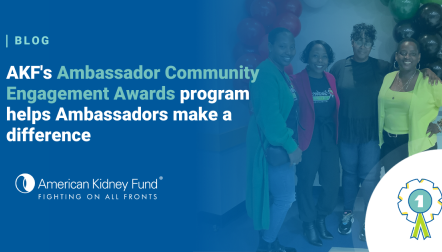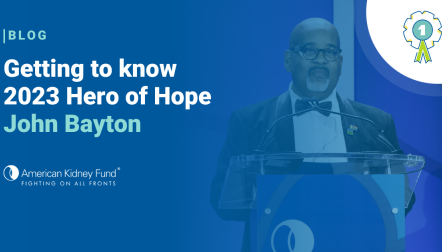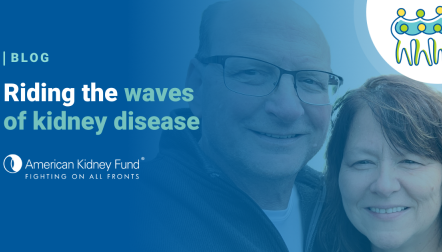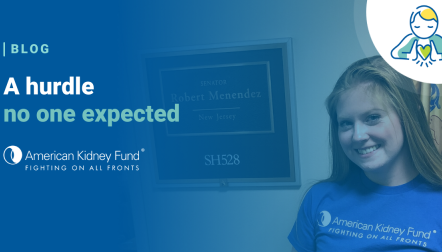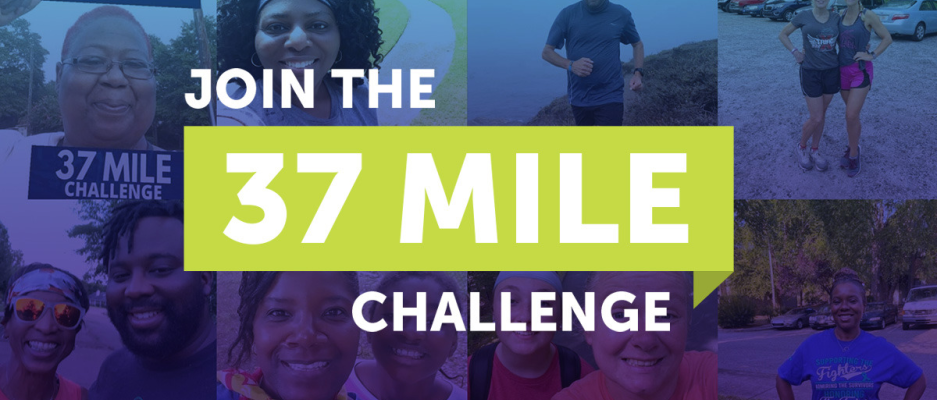
Blog post
POV: Your TikTok video leads you to a desperately needed kidney transplant
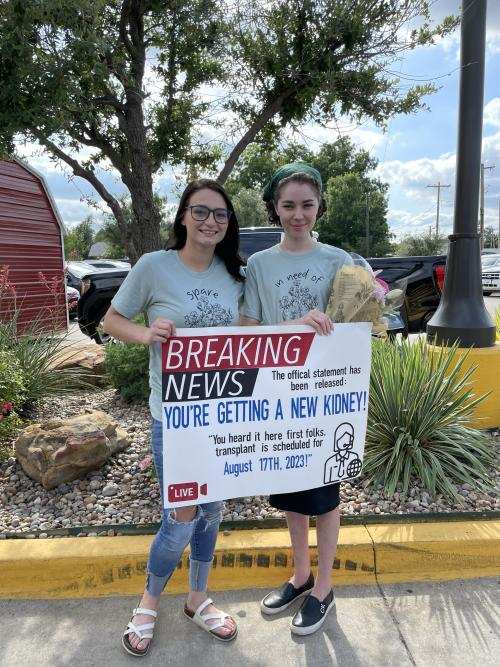
Like many 21-year-olds, AKF Ambassador Katie Hallum decided one day to make a TikTok video using the "You have something I want" line from "The Mandalorian" to "mock" her life experience. A senior at the University of Oklahoma, Katie didn't put much thought into the video beyond making a joke about an uncomfortable ask she needed to make. Little did she know it would help her get exactly what she needed: a new kidney.
Katie was first diagnosed with IgA nephropathy (IgAN), a rare kidney disease, at the age of 18. IgAN causes harmful inflammation in the kidneys that can permanently damage them. After IgAN caused her to go into kidney failure in late 2021, Katie went on dialysis, which proved to be very taxing on her body. She needed a life-saving kidney transplant, but she didn't feel right asking for one because she had a very high life expectancy score, which measured how likely she was to live if she never got a transplant. "[My score was around] six years, but most people [on dialysis] don't even have that," she said.
Nevertheless, her humorous TikTok video was viewed by thousands of people, including Savannah Stallbaumer, a 22-year-old Kansas woman. Savannah, a stranger to Katie at the time, said once she heard about Katie's situation, she couldn't get it out of her head. "I couldn't sleep," she said. "I would think about 'what if I was a match and then I did nothing?'"
As a nursing student, Savannah had interacted with people who were on dialysis and learned about the toll it took on them both mentally and physically. "One of the patients said, 'I would rather die than go on dialysis again,'" she said. "That made me really sad, and I also can't imagine being in college and on dialysis [like Katie was]."
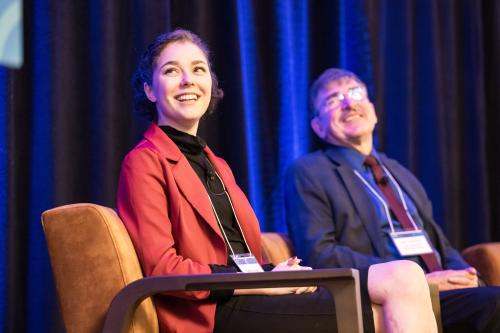
Savannah began commenting on Katie's TikTok videos and asked how she could go about getting tested. At first, Katie didn't take Savannah's offer seriously. "I said, 'Listen, you don't want to do this,'" Katie said. Nevertheless, Savannah persisted and said she had done her research, so Katie agreed to move forward and have Savannah get tested. "I figured there was no way she was going to match with me," Katie said.
But Savannah was a match, and once she learned this, there was no turning back for her. "There wasn't really a thought process of 'Should I do this?' or 'Should I not do this?'" Savannah said. "It was, 'I have to do this.' It was something that was meant to be."
The transplant surgery was performed in August 2023, and although there have been some bumps along the way, both women have recovered and are doing "really well" post-surgery. "It's really nice not having to connect to a machine every night and it's nice having an appetite," Katie said, referencing the fact that she didn't eat a lot while she was on dialysis. "I went from 85 pounds to 100 pounds for the first time in like two years."
As for Savannah, she made it clear that she has no regrets, and said anyone considering donating an organ should know that the medical professionals involved in a transplant team are committed to ensuring that living donors know exactly what they are getting into. "Transplant centers are going to make sure that if you're going through this process that you are informed every step of the way," Savannah said. "They want donors to know all of the risks and they are not going to let you make this decision without you knowing exactly what you need to know."
When it comes to how the transplant came about [through a random social media post], Katie said, "It's honestly a story that's almost unbelievable. So many specific pieces had to fall into place for this to happen, and the fact that [Savannah] was even a match is miraculous. I never asked for a kidney, and yet she was still willing to save my life. There will never be enough words to express my gratitude towards her."
To see news coverage of Katie's story, click here.
To learn more about becoming a living donor, visit our website.


